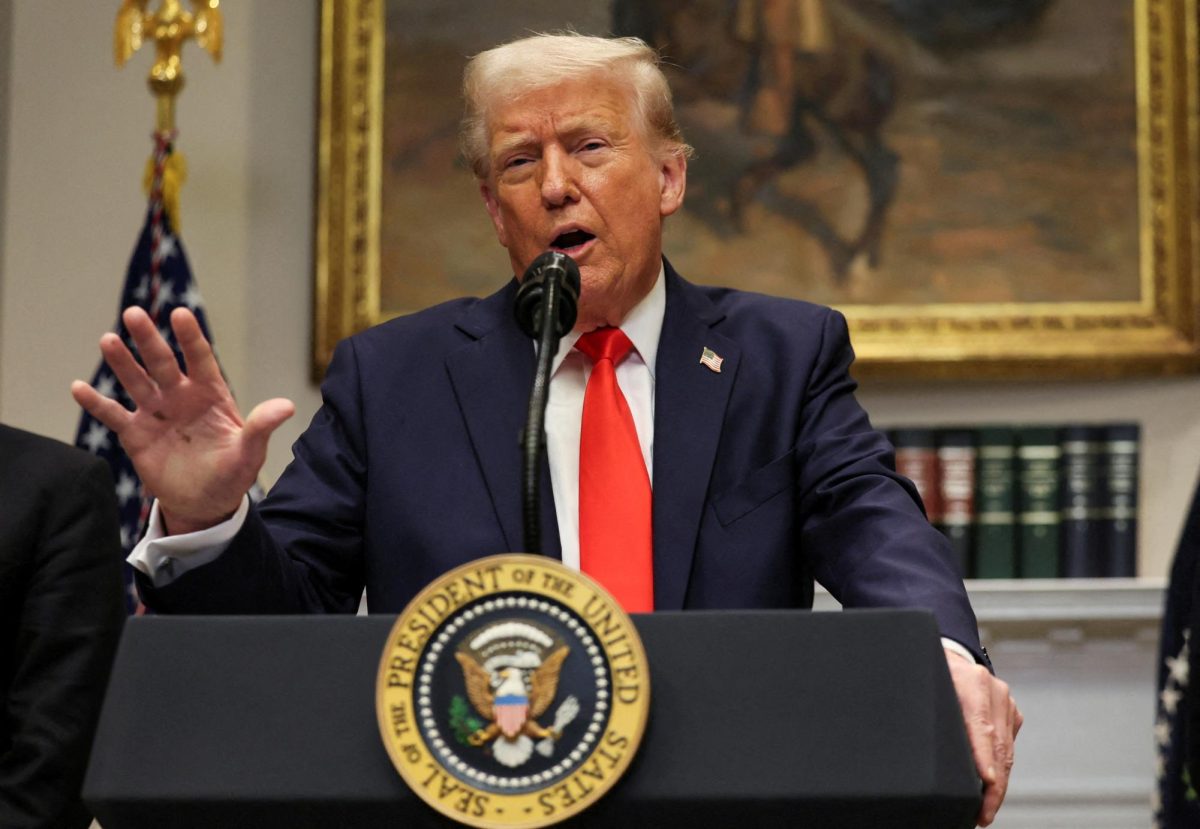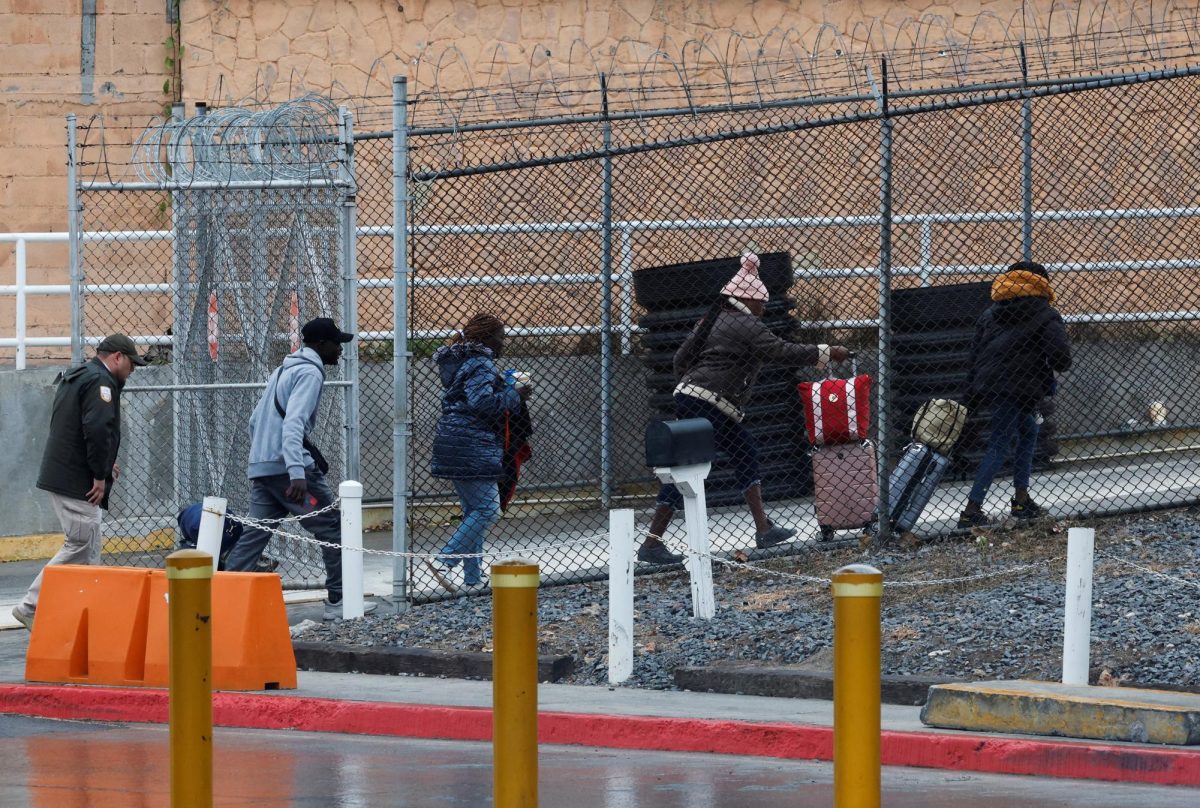Within the last few months, President Donald Trump has begun deporting what his administration deems as the most dangerous illegal immigrants to a mega prison in El Salvador, a nation run by the self-described “world’s coolest dictator.” The prisons have a litany of human rights abuse claims, including malnutrition, and prisoners are denied communication with a lawyer. Although authorities deny human rights watchdogs access and strictly limit journalists’ operations, a Human Rights Watch report states that detainees face severe conditions, including torture, ill-treatment, incommunicado detention, and major violations of due process.
Additionally, they suffer from inhumane treatment, such as inadequate healthcare and food.
The Trump administration has reportedly been in talks with Libya and Rwanda to send undocumented immigrants to prisons in those countries, according to CNN.
The U.S. has invoked the 1789 Alien Enemies Act to send prisoners. This wartime authority allows the President to detain or deport the natives and citizens of an enemy nation. The legality of this application is contested, most notably by the American Civil Liberties Union (ACLU). While the Act grants broad presidential powers to deport individuals from enemy nations without requiring a court date or standard due process, the Supreme Court has not ruled on its application in a modern context. Moreover, many of those deported are asylum seekers or legal residents, and the nation is not currently at war with any nation. Consequently, many argue that using this law is unconstitutional and violates the Fifth Amendment’s guarantee of due process.
Here’s where it then gets concerning for those sent to El Salvador, recently it was discovered by “60 Minutes” that 75% of the men deported to the hellish prisons had no criminal records that they could find. Authorities deported a makeup artist, a soccer player, and a food delivery driver. These individuals were among the 75% for whom no criminal record could be found.
One case in particular has stood out: the case of Kilmar Abrego Garcia. In March 2025, authorities deported a Salvadoran citizen who had resided in Maryland to the Terrorism Confinement Center in El Salvador.
Despite having no criminal record and a U.S. immigration judge’s order protecting him from removal to El Salvador in 2019, and a wife and five-year-old child who are American citizens, the administration called this an “administrative error.” However, the Trump administration has since argued that American courts cannot rectify this error since they have no jurisdiction over Abrego Garcia in El Salvador. A judge ordered the man returned no later than April 7, but the Supreme Court issued a temporary stay while it reviews the case.
Then, in an even more concerning statement, Trump said he was open to the idea of deporting American citizens who had been convicted and sent to prisons in El Salvador. Trump told reporters that he “loved” the idea of deporting citizens to El Salvador, after their president said the country was open to housing U.S. prisoners.
This idea, however, is illegal because U.S. law prohibits the forcible removal of citizens. Under certain circumstances, however, authorities can remove foreign-born citizens. The idea has alarmed civil rights advocates and constitutional scholars.
This reality should deeply concern every American. Even now, the power of deportation is being wielded in disturbing ways, targeting not only those previously mentioned, such as individuals sent to El Salvador, but also those exercising their fundamental rights. Consider the cases of Columbia students Mahmoud Khalil and Mohsen Mahdawi, detained under seemingly pretextual circumstances following their participation in protests concerning Israel. Similarly, Rumeysa Ozturk, a Turkish national and student journalist at Tufts University, had her F-1 visa revoked and was detained by ICE based on accusations of “engaged in activities in support of Hamas,” a Department of Homeland Security spokesperson said March 26 in a statement. These instances reveal a potentially chilling trend of using immigration authority to suppress dissent and target specific viewpoints.
The activities referenced refer to an op-ed co-written by Rumeysa, in which she criticized Tufts’ response to a student government group’s call for the university to divest from companies with ties to Israel due to the conflict in Gaza.
The recent actions against student journalists are a direct attack on their freedom of the press, and this is the start. Historically, the erosion of democratic freedoms often begins with targeting vulnerable groups and those who speak truth to power. Authoritarian regimes tend to implement restrictions incrementally, starting with measures that may seem less significant or affect marginalized communities. We’ve seen this pattern in other nations where initial actions paved the way for later, more severe crackdowns.
Targeting student journalists could be an early step in this kind of progression. By creating a climate of fear and self-censorship among young reporters, it could discourage scrutiny and dissent more broadly in the future. The danger lies in the “slippery slope” – if we allow restrictions on one group’s freedom of speech, it can create a precedent for further limitations on others. This can gradually silence critical voices and undermine the foundations of a free society. Ultimately, a society where journalists, even student journalists, fear reprisal is a society where accountability and transparency are diminished, potentially leading to more significant erosion of freedom down the line.
A famous poem titled “First They Came,” written by a German priest named Martin Niemöller, depicts the series in which the Nazis targeted their opponents. It goes like this:
“First they came for the Communists
And I did not speak out
Because I was not a Communist
Then they came for the Socialists
And I did not speak out
Because I was not a Socialist
Then they came for the trade unionists
And I did not speak out
Because I was not a trade unionist
Then they came for the Jews
And I did not speak out
Because I was not a Jew
Then they came for me
And there was no one left
To speak out for me”
The situation now is not comparable to the Nazis’ actions, but the general idea is eerily similar. They start slowly—targeting groups most might not be willing to defend or those already scapegoated—and then they move down the ladder. Like with this administration, first we were going to deport the “worst of the worst.” Then, we started sending them to a prison in El Salvador—not their home nation. Now, he is discussing sending American criminals to prisons in El Salvador, which is illegal. But some have floated ideas of creating something similar to Guantanamo Bay in El Salvador, a legally grey area outside of some or all constitutional protections.
This puts this country on a very slippery slope toward authoritarianism. Once a government creates a group of people whom the Constitution does not protect, nothing stops the government from putting others into this category, such as protesters, journalists, and those they deem a “threat.” Once that happens, it is very hard to claw back.
 No one wants to be an alarmist, but this alarm needs to be sounded. The protections we have long relied on—to protest, to assemble, to speak out against what we view as unjust—are under real threat by our government. In countries like Hungary and Russia, those freedoms were never ingrained as much as they are here, at least for now. But we must use those freedoms while we still have the chance, because the last thing we should ever see is a version of “First They Came” written about the United States.
No one wants to be an alarmist, but this alarm needs to be sounded. The protections we have long relied on—to protest, to assemble, to speak out against what we view as unjust—are under real threat by our government. In countries like Hungary and Russia, those freedoms were never ingrained as much as they are here, at least for now. But we must use those freedoms while we still have the chance, because the last thing we should ever see is a version of “First They Came” written about the United States.














Brady F • May 3, 2025 at 6:26 pm
Very interesting and informative article!